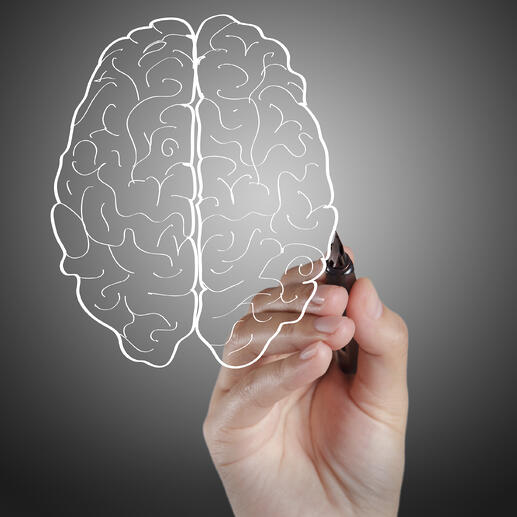
The Brain Detoxes at Night
New research has recently revealed that the brain is protected via nightly cleansing. During deep sleep the brain shrinks about 40-50% to flush out toxins which would otherwise accumulate in the brain. Altering this brain shrinkage results in toxic accumulation in the brain, which in turn may lead to brain degeneration e.g. Alzheimer’s, Parkinson’s, MS, ALS and dementia.
This action by the brain of squeezing out toxins is similar to squeezing out water in a sponge. Unfortunately, this self protective cleansing technique by the brain is compromised by several factors.
The Problem with Missing TeethOne of the biggest compromising factors of brain cleansing is missing teeth. When teeth (other than 3rd molars) are missing and not replaced, the jaws will over close until the teeth hit in their new lower position. This is called bite collapse and occurs when missing teeth are not replaced, or teeth are worn down by severe teeth grinding or bruxing.
Long term brain health thus requires replacing missing teeth or fabricating a lower, mandibular night guard to interrupt teeth grinding. Additional measures to facilitate nocturnal brain shrinkage and cleansing are to optimize sleep (i.e. correct snoring or sleep apnea), optimize cranial / osteopathic movement of the cranium with craniosacral therapy, and to consistently achieve deep, brain restorative sleep.
Oral Care Affects Overall Health
Achieving long term brain health can be proactive but must uncover all the factors that compromise your sleep including tooth and jaw alignment or sleep apnea. Don’t wait until your brain shows declining function or degeneration.
Proper dental care affects not only the oral cavity but the overall health of the body. Get regular dental check ups and cleanings, a sleep evaluation if indicated, and be sure to correct brain compromising factors now.
.png?width=305&height=132&name=NIHAlogoBLUE_3_transparent%20(2).png)
